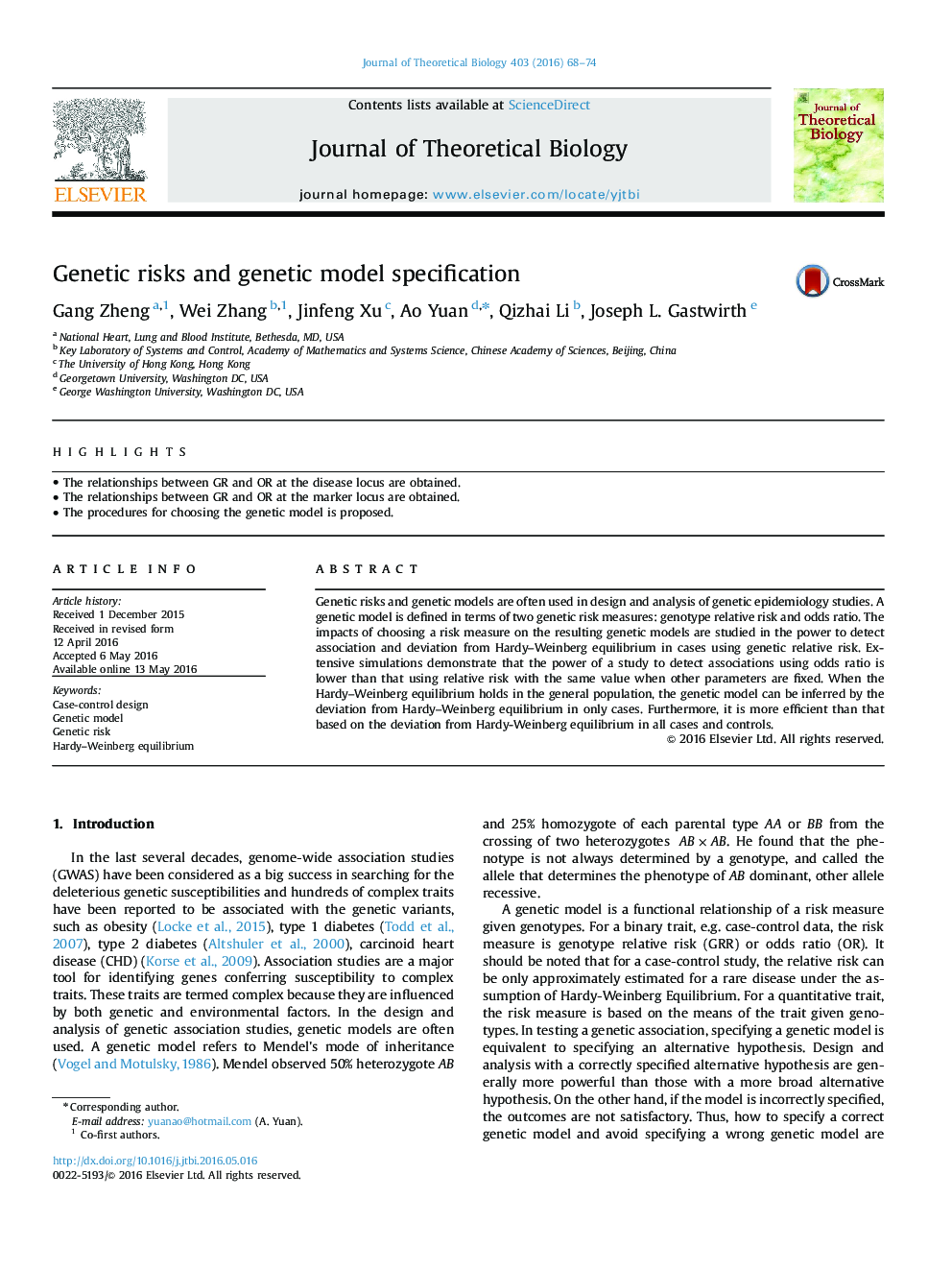| Article ID | Journal | Published Year | Pages | File Type |
|---|---|---|---|---|
| 6369141 | Journal of Theoretical Biology | 2016 | 7 Pages |
Abstract
Genetic risks and genetic models are often used in design and analysis of genetic epidemiology studies. A genetic model is defined in terms of two genetic risk measures: genotype relative risk and odds ratio. The impacts of choosing a risk measure on the resulting genetic models are studied in the power to detect association and deviation from Hardy-Weinberg equilibrium in cases using genetic relative risk. Extensive simulations demonstrate that the power of a study to detect associations using odds ratio is lower than that using relative risk with the same value when other parameters are fixed. When the Hardy-Weinberg equilibrium holds in the general population, the genetic model can be inferred by the deviation from Hardy-Weinberg equilibrium in only cases. Furthermore, it is more efficient than that based on the deviation from Hardy-Weinberg equilibrium in all cases and controls.
Related Topics
Life Sciences
Agricultural and Biological Sciences
Agricultural and Biological Sciences (General)
Authors
Gang Zheng, Wei Zhang, Jinfeng Xu, Ao Yuan, Qizhai Li, Joseph L. Gastwirth,
